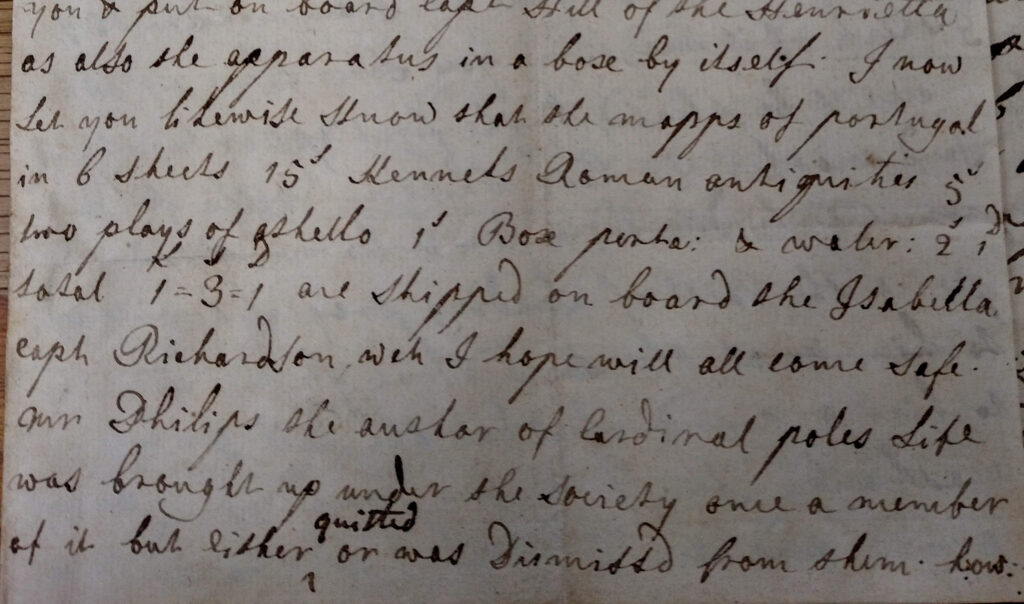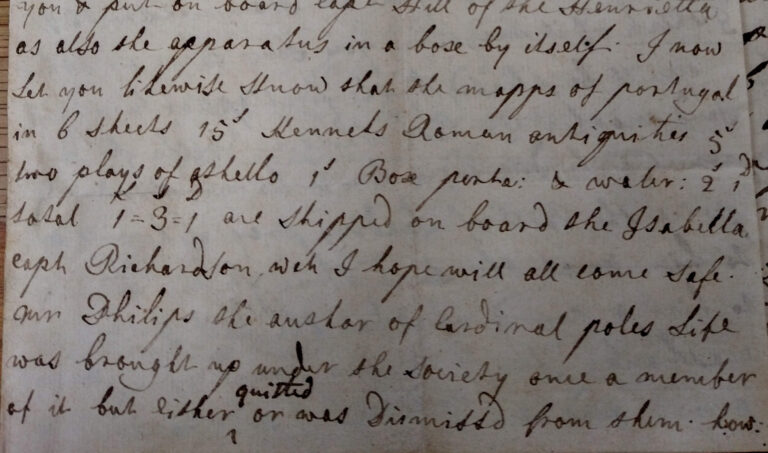Professor John Stone documents the first arrival of Shakespeare’s plays in Portugal
John Stone, a professor at the University of Barcelona, has found the request for two copies of Shakespeare’s Othello to be sent to Lisbon in 1765, in the correspondence of the English scholar John Preston, a professor at the English College in Lisbon, addressed to the college’s London agent, John Sheppard.
Although partial translations — sometimes from French editions — of Shakespeare’s plays had been known to exist in Portugal since the late eighteenth century, this is the first time that the arrival of Shakespeare’s plays in their original language in Lisbon and, by extension, in the Lusophone world can be documented. This finding confirms that Shakespeare’s plays circulated among binational and bilingual or multilingual family and commercial networks, as well as among readers for whom English was neither their language nor the language of origin.The copies were sent by sea, along with many other volumes in a larger order. Preston and the College regularly requested and received books and goods from England. These shipments provide the immediate context in which Othello’s presence in Portugal in the sixties of the 18th century is understood. Moreover, this fact points to a wider phenomenon, both of British and Irish expatriates and of a local community that read widely in English throughout the eighteenth century.
John Preston (1712-1780) was a priest and professor of theology, tutor to the crown prince of the Portuguese throne, and was in charge of the developing policy to fit the English College into Portuguese civil life. This college was a modest establishment for about twenty-five students, and it was part of an informal but extensive network of diasporic institutions serving English, Scottish and Irish Catholics.
Stone wonders why Preston ordered precisely two copies of Othello, rather than works such as King Lear, Macbeth, Romeo and Juliet or Antony and Cleopatra. He notes that perhaps this
“should be associated with a long Portuguese theatrical tradition featuring African characters — linguistically marked comics — or, more generally, with the fact that the play is itself an expatriate drama in a maritime culture”.

Bibliographic information:
Stone, John, «Othello Goes to Lisbon, 1765», Notes and Queries, March, 14 2024, DOI: doi.org/10.1093/notesj/gjae022
Press release from the University of Barcelona



